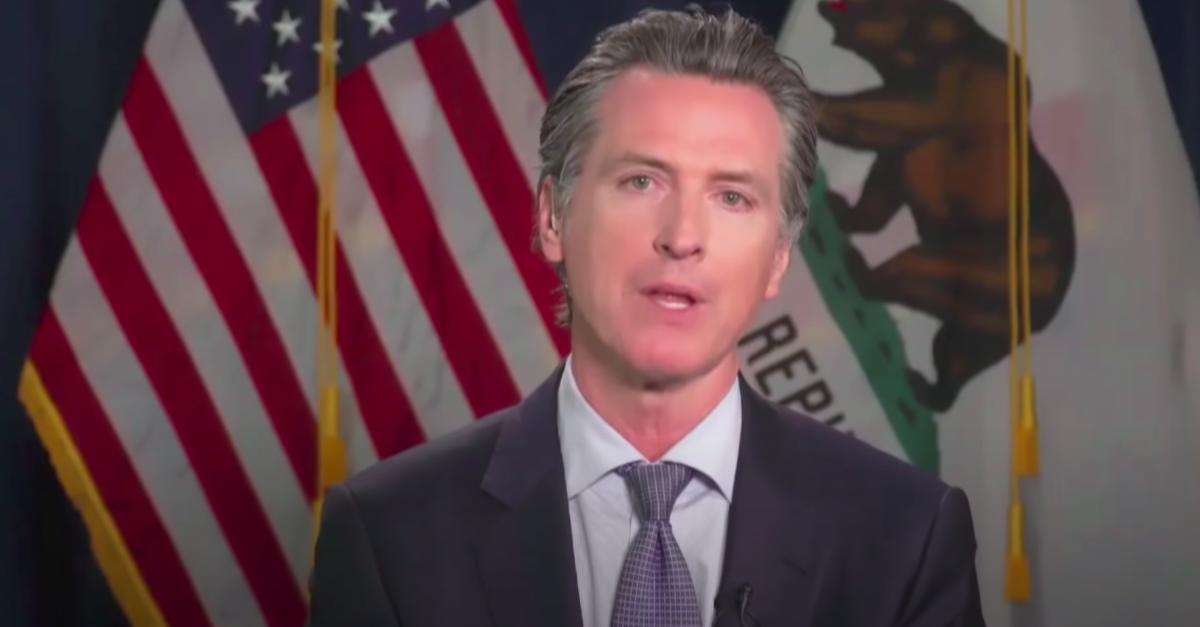
A federal appeals court in California on Monday blocked the provisions in Democratic Gov. Gavin Newsom’s pandemic-related executive order that limited attendance at indoor religious services to a fixed-number of people—unless that number is zero.
The three-judge panel on the Ninth Circuit Court of Appeals unanimously reasoned that, in light of the court’s Friday decision in South Bay United Pentecostal Church v. Newsom, limiting or banning church attendance to stymie the spread of the virus did not violate the Free Exercise Clause, provided that any such limitations are based on a percentage of the building’s maximum capacity as tied to fire-code.
Total bans on in-person services, however, were deemed justifiable in areas particularly hard-hit by the pandemic. Under Newsom’s three-tiered health policy, houses of worship in Tier 3—those areas with the lowest rates of COVID-19—were allowed to have a maximum of 200 attendees, Tier 2 were allowed up to 100, and Tier 1 were entirely prohibited from holding indoor services.
In South Bay, a different three-judge panel on the court unanimously held that there was an “extensive evidentiary record and concluded that California’s restrictions on indoor worship are narrowly tailored to meet its compelling—and immediate—state interest in stopping the community spread of the deadly coronavirus.”
While Friday’s order only applied to the individual South Bay church in San Diego County, Monday’s ruling will apply to all 162 churches associated with Harvest Rock Church in the state.
But U.S. Circuit Judge Diarmuid O’Scannlain, an appointee of President Ronald Reagan, penned a separate 7-page “specially concurring” opinion stating that Ninth Circuit’s recent opinion in South Bay meant that he had to “largely deny Harvest Rock Church’s emergency motion for an injunction against the State of California’s draconian restrictions on indoor worship services.”
Still, the circuit judge wrote, “I believe that the decision in South Bay is woefully out of step with both the Supreme Court’s decision in Roman Catholic Diocese of Brooklyn v. Cuomo” (read more about that case here).
“California’s uniquely severe restrictions against religious worship services—including its total ban against indoor worship in nearly the entire state—are patently unconstitutional and should be enjoined. The court’s refusal to do so in South Bay cries out for correction,” O’Scannlain wrote. “California has not come close to showing that its measures are narrowly tailored to that interest. As exhaustively recounted in the South Bay decision, the State submitted many pages of expert testimony setting forth its understanding of how COVID-19 is spread and why indoor activities present a risk of such spread. But even if we were to accept that testimony as true, it does not support a total ban on indoor services as the least restrictive means available to mitigate the risk at places of worship.”
Notably, the Ninth Circuit also said that the injunction did not block California—”pending resolution of the appeal in this case”—from placing restrictions on “singing and chanting at indoor worship services.”
See below for the full ruling:
Ninth Circuit Order by Law&Crime on Scribd
[image via YouTube screengrab]